 Where No Man Has Gone Before
Where No Man Has Gone Before
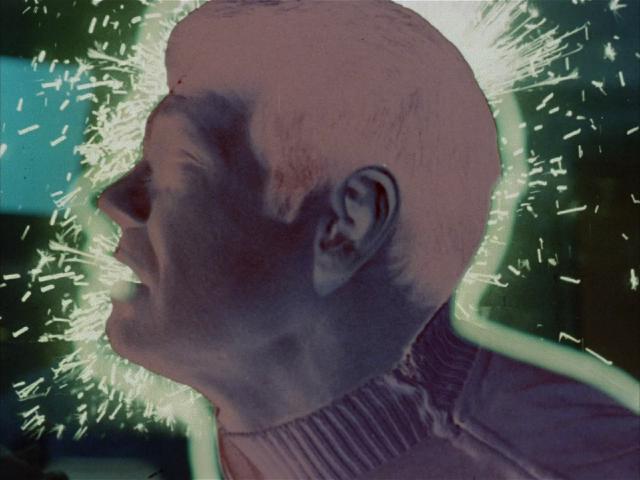
Review
Since this episode is Star Trek’s pilot, a lot of little details are out of whack with other episodes. The most obvious difference is that for this episode only, the ship’s surgeon is Mark Piper and Leonard McCoy is not even mentioned.
But the difference that bothers me most is that this episode is directly opposed to the spirit of Star Trek. Like the two previously-aired episodes, it can be viewed as a monster-of-the-week horror story featuring a tragic villain and a melancholy ending where the problem cannot be resolved with reason and compassion. But worse than that - it is textbook cautionary tale sci-fi.
The episode opens with the crew preparing to explore beyond our own galaxy. That’s a big, bold, exciting idea and a solid choice for the pilot of a forward-looking show about exploration and discovery. But it soon becomes clear that this premise isn’t actually about celebrating humanity’s advances and natural drive to explore: it’s hubris. It’s not just where no man has gone before; it’s where man was not meant to go, and to go there anyway invites disaster.
After encountering the Valiant’s disaster recorder and the barrier their sensors can’t make sense of, Kirk spends almost no time or effort to understand the risk posed to his ship and crew. He quickly orders the Enterprise to proceed through the barrier with only the flimsy justification that other ships will eventually need to come this way. Entering the barrier causes the immediate death of nine crew members (and this episode sets the series record for number of Enterprise crew deaths).
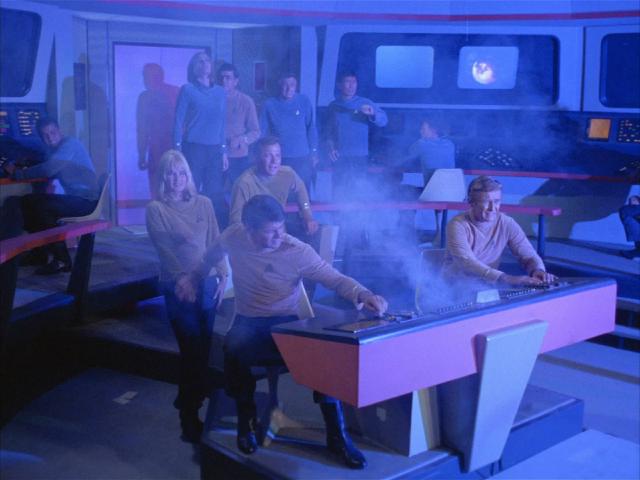
Nobody calls Kirk out for this terrible decision, but that may be because the plot moves on and completely forgets about the barrier and mission. The new focus is an even greater threat: an expanding of human capability, which apparently inevitably turns humans into monsters.
While I don’t think the episode’s attempts to make Gary Mitchell likable work particularly well for modern audiences, it’s clear that we are supposed to understand that Mitchell is a good guy and has been friends with Kirk for fifteen years. Yet when the barrier causes his latent psychic powers to emerge and grow exponentially, he very quickly turns into a sociopath and an existential threat to not only the Enterprise but humanity at large. A few lines of dialog imply that the problem is that Mitchell has become more powerful while retaining his human flaws, but no dialog implies that Mitchell is any more flawed than any other human or that anyone is surprised by his change in personality. Turning into a monster with no regard for the lives of the less-powerful is presented as an inevitable and immediate outcome of a human becoming more powerful.
Spock is the only member of the crew to see this trend clearly from the beginning. He advocates for removing Mitchell from the ship or outright killing him while this is still possible. This horrifies Dehner and Kirk who accuse him of being heartless, and it probably sounds heartless to most audience members as well. But the episode’s events show that in the world of the show, Spock is completely correct: Mitchell must be dealt with decisively and immediately. Kirk’s delays only give Mitchell time to get stronger before the botched attempt to strand him on Delta Vega–which results in the murder of Kelso. Ultimately, the conflict is only resolved with the death of Mitchell (and Dehner). The crew could have saved themselves a lot of trouble (not to mention Kelso’s life) if they’d done as Spock advised and just killed Mitchell earlier when he was still weak (though it’s unclear what would have happened with Dehner in this scenario).
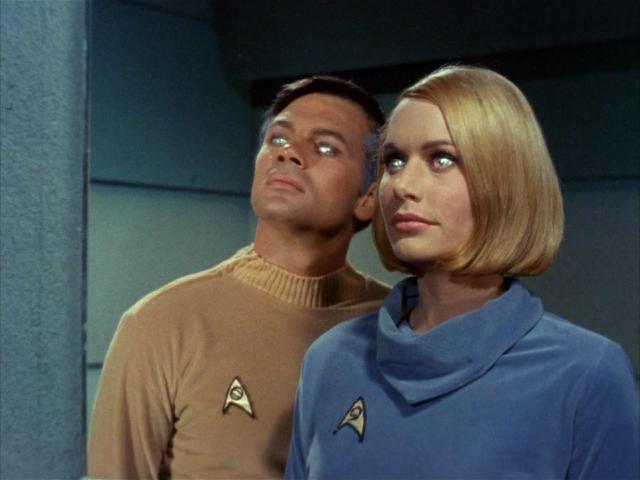
So what are we meant to take from this? The episode’s events seem to convey the following themes:
- Exploration for its own sake is foolhardy.
- Human flaws mean that expanding our capabilities will only create cruelty.
- Compassion is a weakness.
It’s quite possible to tell compelling stories with these themes, but the result would be the opposite of what people love about Star Trek.
Since this is the pilot, I’m inclined to chalk up the thematic dissonance to the same cause as the episode’s goofy bits (like Piper reviving the unconscious Kirk and Spock by putting pills in their mouths). In short, Star Trek was new and the creators were still figuring out what worked and what didn’t. And while those early steps are interesting from a historical perspective, I can’t recommend “Where No Man Has Gone Before” for new viewers - certainly not as a starting point.
Assorted Observations
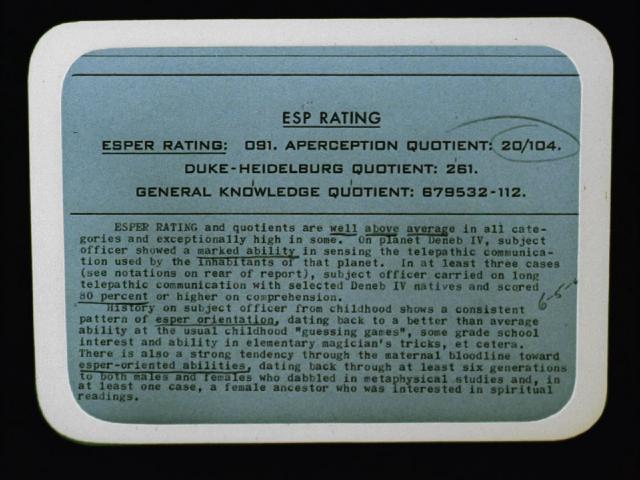
This episode is unusual in that it matter-of-factly posits that humans have latent ESP that varies measurably between individuals and which can be triggered and amplified. I assume this is mostly a product of the times, as belief in psychic phenomena was perhaps a bit more widespread in the 1960s than today. Regardless, later installments quietly ignore this premise and (with very few exceptions) it doesn’t apply to the universe of Star Trek.
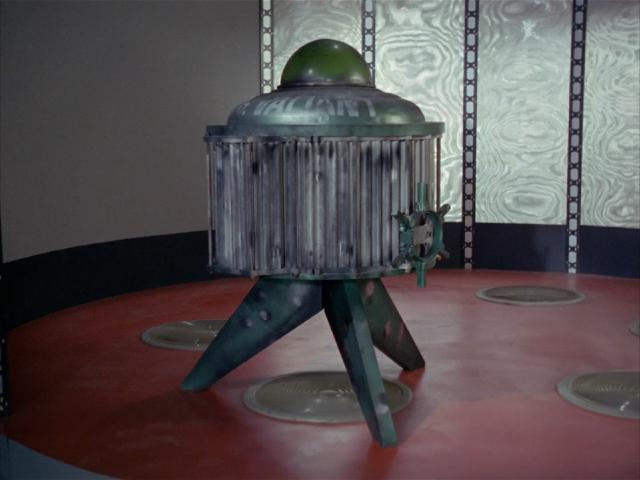
Another oddity of this episode is what it implies about Earth’s future history. Early on, we learn that the Valiant has been missing for over two centuries. Later we learn that a poem written in 1996 is one of the “most passionate love sonnets of the past couple of centuries,” suggesting that the episode takes place no more than a “couple of centuries” after 1996.
These facts are fine by themselves, but together they imply that Earth had crewed spaceships capable of reaching the edge of the galaxy not much later than 1996. This was a very optimistic prediction to make a few years before we even managed to land on the Moon.
Since these details are not important to the episode’s plot, I don’t know why they were specified the way they were. It seems distracting and wholly avoidable. I think it would have made far more sense to have had the Valiant missing for years or decades instead of centuries and to simply not specify a year for the poem.
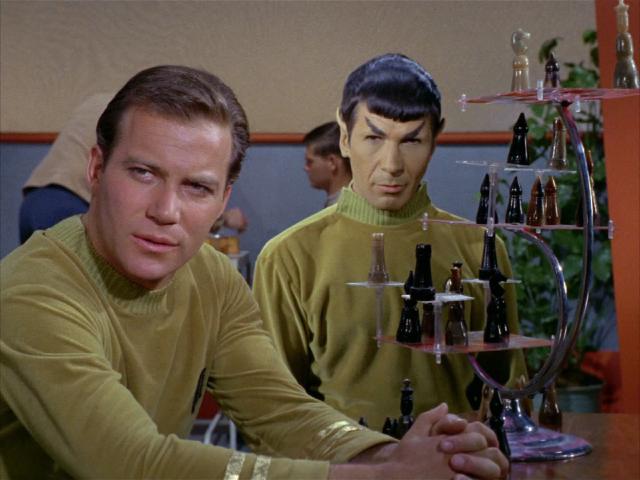
But the most frustrating oddity of “Where No Man Has Gone Before” is the handling of Spock’s lack of emotions. When Kirk tells Spock that his style of playing chess is irritating, Spock replies, “Irritating? Ah, yes. One of your Earth emotions.” Later on, Dehner says that “those from [his] planet aren’t supposed to have feelings like we do.” Shortly after this, Spock explains why he can see that Mitchell is highly dangerous when “trained psychiatrist” Dehner cannot by saying, “Because she feels. I don’t. All I know is logic.”
Everyone understands that Spock does not have human emotions, but they attack him for it anyway. Even Kirk reacts as though Spock is being cruel rather than pragmatic - he responds to Spock’s suggestion of killing Mitchell by saying, “Will you try for one moment to feel? At least act like you’ve got a heart.”
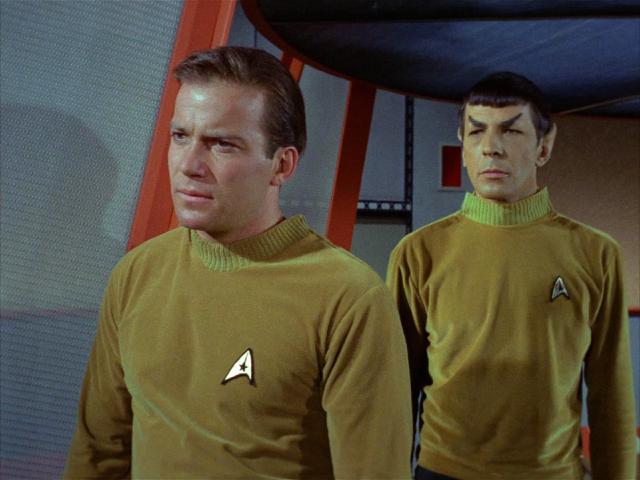
Once the threat has passed and Mitchell is dead, the episode ends with Spock mentioning that he “felt for [Mitchell], too.” Taken literally, this directly contradicts all the previous dialog that strongly emphasized Spock’s lack of feelings. But I read this as Spock simply using human terminology to say that he recognized that Mitchell’s death was unfortunate. He wasn’t being pointlessly sadistic when he told Kirk they had to kill Mitchell - he simply wasn’t letting emotions get in the way of seeing what needed to be done.
So I find it infuriating that Kirk responds to Spock’s vulnerable admission of sympathy (or the equivalent) with a smug, “I believe there’s some hope for you after all, Mr. Spock.” Especially since every death in this episode is on Kirk’s hands. Ordering the Enterprise into the barrier killed nine crew members and created the situation in which Mitchell’s death was required, and then Kirk’s emotionally-driven reluctance to follow Spock’s advice resulted in Kelso’s murder and Dehner’s death. Not only is Kirk never called out for this, but he has the gall to imply that his emotions make him better than Spock.
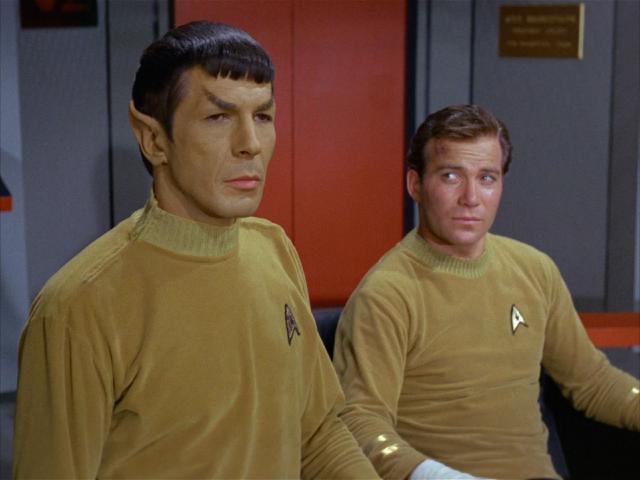
There’s hope for Mr. Spock, all right - this episode has shown that he is exactly who you want to be in charge in complex, dangerous situations. But after these events, it’s much harder for me to feel like there’s any hope for Captain Kirk.